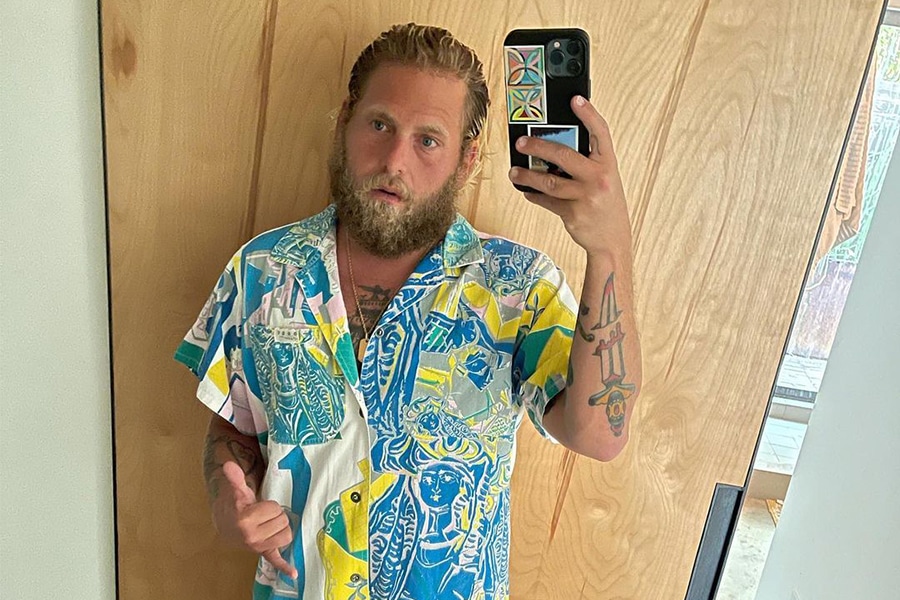
Yesterday, on October 14, Jonah Hill posted to Instagram asking his followers to no longer comment on his appearance, negative or positive. He set a boundary and a firm one at that. And after years of being shamed by the media for his weight and appearance, who can blame him? At 37-years-old the actor has reminded us that he's doing the work and so should we.
His post read, "I know you mean well but I kindly ask that you not comment on my body, good or bad. I want to politely let you know that it's not helpful and doesn't feel good. Much respect."
View this post on Instagram
For years we've witnessed publications and the public in general grind Jonah down. One need only scroll down through his Instagram account to see evidence of it from The Daily Mail. Of course, when Jonah posted that article earlier this year, calling out the tabloid for attempting to ridicule him with a shirtless photo, he was in a position where he no longer felt fazed by the media's toxic, fatphobic rhetoric around his body. A peace many of us have to fight tooth-and-nail for, even without the relentless force of the media against us.
Our reaction to his request was much the same as SZA's and even his sister Beanie's – good for him! With the advent of social media, we've all formed parasocial relationships with celebrities and influencers. In fact, that's simply how platforms like Instagram and Tik Tok work. We adore them, liking and commenting on their photos and they don't know we exist.
Of course, we've been speaking about these parasocial relationship more often since the pandemic first knocked on our door stop some 18 months ago. As celebrities jetted off on their private planes to their private islands, escaping the bleak reality of Covid-19, we met their posts on social media with outrage – at their wealth, at their ignorance, at the sheer audacity. And while that particular conversation about wealth and privilege is one we need to keep having, over the last couple of years it's become clear that we expect a lot from our celebrities. (And no, I'm not talking about Jeff Bezos ((et al.)) and his billions, as far as we're concerned, it's tax the rich everyday, baby! Nor does this apply to celebrities in positions of power who abuse it.)
But while Jonah Hill's request for us to leave the poor man alone is valid, let's not forget that it's easy to set boundaries on the internet, and have people respect those boundaries, when you're a white, cis man. Which begs the question, how would this situation have been received if it was Lizzo or Zoe Kravitz making the request?
Unfortunately, we don't need to hypothesise here, we've got real time evidence. How many times has Lizzo pleaded with her followers to stop making disparaging comments about her body. Remember the time she had to furiously defend herself for going on a juice cleanse? Or more recently in August when Facebook and Instagram removed hateful and racist comments on Lizzo's social media. Was she not clear when she said, "What I won't accept is y'all doing this to black women over and over and over again, especially us big black girls. When we don't fit into the box that you want to put us in, you just unleash hatred onto us. It's not cool."
So much of the time women, particularly Black and trans women, including gender diverse folk, are met with this notion that if you're famous, if you have followers, you don't get to decide how you're treated online – especially when it comes to your body. You should just be lucky to exist in the limited space you've been given. It's a symptom of a society that still believes wom*n should be seen not heard.
When Zoe Kravitz defended herself against people slut-shaming her for Saint Laurent Met Gala dress – which, by the way, had the RUSSH team squealing with admiration – she had to resort to wiping her posts to escape the rampant critique of her body.
Coming from Jonah Hill, the message may have been more palatable, but it's important to note that he was not the first to set this boundary. It's just the first time we have decided to listen.
Images: Instagram



